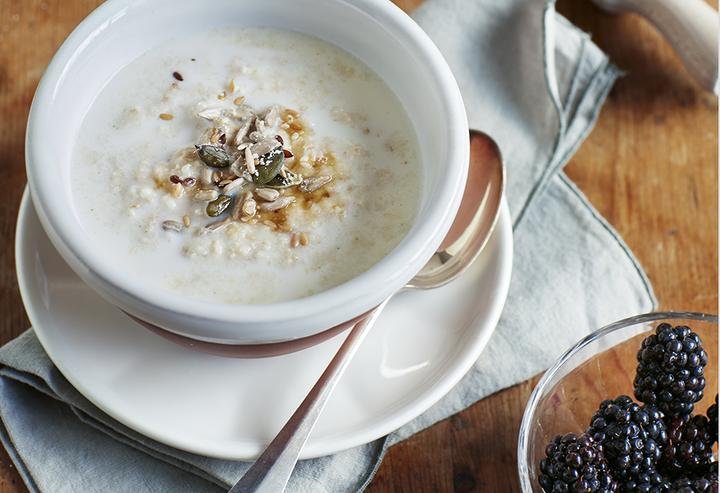July 15, 2017
Summer’s long, hot days can make life tricky when you’re being treated for cancer, as drug regimens may mean the body is less able to cope with humidity and high temperatures. I’m happy to recommend a bowl of cooling ice cream to anyone struggling, especially as the combination of protein, carbohydrates and fats can tempt the appetite when the energy-sapping heat and treatment makes eating a full meal feel impossible. Unfortunately, you may find that your treatment has made you more sensitive to dairy foods, or lactose intolerant, in which case you may want to look for alternatives to your usual milk, butter, cheese and cream. There is also concern among some in the cancer community due to conflicting information on eating dairy products and increased cancer risk, which can result in a reluctance to tuck into that bowl of raspberry ripple, however tempting.

Some early research suggested that there could be a link between dairy intake and the risk of developing prostate and breast cancers, possibly because of the saturated fats they contain, or contaminants that could be present. This probably fuelled the common misconception that milk is ‘full of hormones’, although growth hormones are banned from use in the EU and naturally occurring hormones in milk are present only at minute levels compared to the amounts we produce in our own bodies. In contrast, a beneficial role for high-calcium foods, such as dairy, has been suggested by other studies. The World Cancer Research Fund (WCRF), which reviews the scientific evidence on diet and cancer, has concluded that diets high in calcium decrease the risk of cancer of the bowel. The WCRF has also concluded that the science linking dairy foods and other cancers is inconclusive, in terms of either negative or positive effects. Therefore, the consensus among the majority of the cancer-research community is that there’s no clear evidence to support advice to eliminate dairy from the diet, either for cancer prevention or for cancer survivors.
Milk and dairy are good sources of calcium and protein, as well as iodine, which are needed as part of a healthy diet. But I firmly believe in personal choice and if you feel happier avoiding dairy, then this is something you can do and still be well nourished. I particularly like the flavour of almond milk, but you could also choose hemp, coconut, rice and oat milks, as well as yoghurts, butters and creams made from coconut and other nondairy ingredients. Opt for fortified versions which have added essential vitamins and minerals. Fortified soya products are another option, although I realise some people are concerned about the phytoestrogens (naturally occurring oestrogen-like substances) found in soya, especially in relation to hormone-dependent cancers. While studies on animals have shown that large amounts of phytoestrogens affect the development of reproductive organs and fertility, there is no clear evidence that there is a similar effect in people.
Non-dairy milk alternatives may not have the same nutritional profile as dairy milks, and if you’re eating dairy-free you will need to make a conscious effort to include other calcium-rich foods in your diet. Canned oily fish with soft edible bones, such as sardines and pilchards, some green leafy vegetables (this does not include spinach, as it contains oxalic acid, which hinders absorption of calcium), almonds, sesame seeds (so tahini is great), sunflower seeds and dried fruits, such as figs, are all great sources.
And finally, let’s think about some summer coolers! The good news is that not all frozen treats contain milk and cream. A scoop or two of dairy-free sorbet could give you the Big Freeze you need. Try these recipes – a mix of dairy and dairy-free – and let me know what you think.
Instant banana ice cream
Honey ice cream
Frozen raspberry & blackberry yoghurt
Strawberry yoghurt fool
I’m thrilled to have been asked by Macmillan Cancer Support to join their Ask an Expert panel, offering insight on nourishing solutions to help when you are living with cancer. As well as answering questions for members of the Macmillan community, I will be filming a series of videos on common issues around eating when you are being treated for cancer or you’re in recovery. This is an unpaid, voluntary role but one I’m honoured to accept because of the immensely valuable support that Macmillan gives to those affected by cancer.


